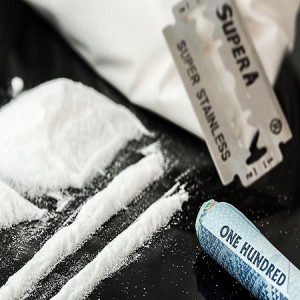 Many patients recovering from addiction and their families ask us about the hardest drug addictions to overcome. We understand their interest. People want to know how difficult the process will be for them or their loved ones.
Many patients recovering from addiction and their families ask us about the hardest drug addictions to overcome. We understand their interest. People want to know how difficult the process will be for them or their loved ones.
All drug addictions can be difficult to overcome, but it is true that some drugs produce more powerful withdrawal symptoms than others. Here’s what we know about the hardest drugs to kick.
Benzodiazepines are commonly prescribed anti-anxiety drugs such as Valium, Xanax, Klonopin and Halcion. They’re considered some of the most addictive drugs available by prescription.
Up to 60% of people prescribed Benzodiazepines (also known as benzo’s) develop a physical dependency.
Benzodiazepines work by helping a brain chemical, called GABA, be more effective. Naturally, GABA has a calming effect, but many users quickly become tolerant to the drug’s effects. Still, they’re considered by many doctors to be the most effective medications to combat panic attacks.
Some common symptoms of benzo withdrawal include:
Additional severe symptoms include suicidal thoughts, seizures, and even death.
Benzo’s are both difficult to overcome and highly dangerous. Overdose is common — 30% of pharmaceutical overdoses in the US are because of these drugs.
Few consider alcohol to be a particularly difficult addiction to overcome because it’s legal and so many people use it regularly. But that’s one of the reasons alcohol addiction is so prevalent — our culture of acceptance leads many alcoholics to relapse, thinking that “just one drink” with friends couldn’t hurt.
For people trying to kick the habit, alcohol withdrawal also comes with a variety of symptoms, such as:
Symptoms generally peak around 24 to 72 hours after withdrawal, though they can continue for weeks.
Some people also suffer from a severe case of alcohol withdrawal, called delirium tremens. It has its own common symptoms:
Alcohol acts as a depressant of the central nervous system. Long term abuse can also alter the brain’s reward system and impact motor skills.
In the US, 7% of adults suffer from some kind of alcohol-use disorder. The prevalence of alcoholism is one of the reasons it’s considered such a hard drug to overcome.
Opiates as a category include both prescription and illegal drugs, such as morphine, heroin, methadone, codeine, OxyContin, Percocet and Vicodin.
Physical dependency on these drugs develops frequently, especially when they are injected. Psychological dependence is also a factor, as many people use these drugs to manage chronic pain, unwanted emotions and high stress.
Withdrawal symptoms from opiates can be deadly. Common symptoms include:
It’s incredibly difficult for opiate addicts to overcome their addiction without help. Those who try rarely succeed for more than 60-90 days.
Methadone has traditionally been used as a way to wean heroin users off the drug and minimize withdrawal symptoms. However methadone is incredibly addictive itself and rarely leads to long-term recovery. 70% to 90% of methadone users relapse shortly after ending treatment.
There are a lot of factors that affect how difficult a drug addiction is to overcome. Physical addiction and psychological addiction combined with social sanctions create a unique environment that can encourage dependency.
At the same time, drug addiction can vary from person to person. Besides physical and mental health, a person’s support network can make a huge difference in how difficult it is to overcome drug addiction.
What do you think affects someone’s ability to overcome drug addiction? Share your thoughts in the comments below.
